Indigenous Governance Database
wildlife management
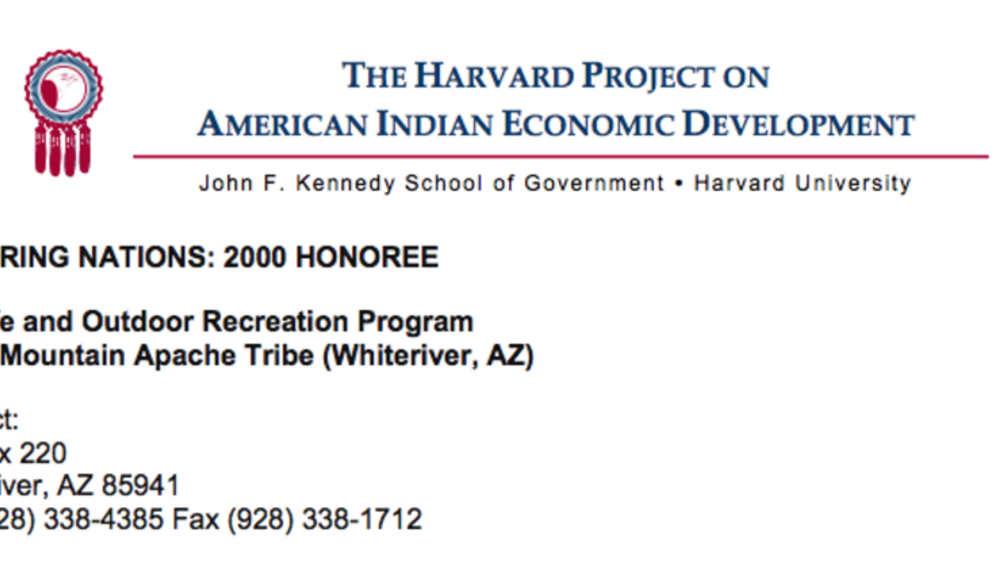
White Mountain Apache Wildlife and Recreation Program
The White Mountain Apache Wildlife and Recreation Program fulfills the dual role of performing all wildlife conservation and management and serving as a self-sustaining business enterprise based on the Tribe’s recreation/tourism industry. The program’s effective wildlife management techniques have…
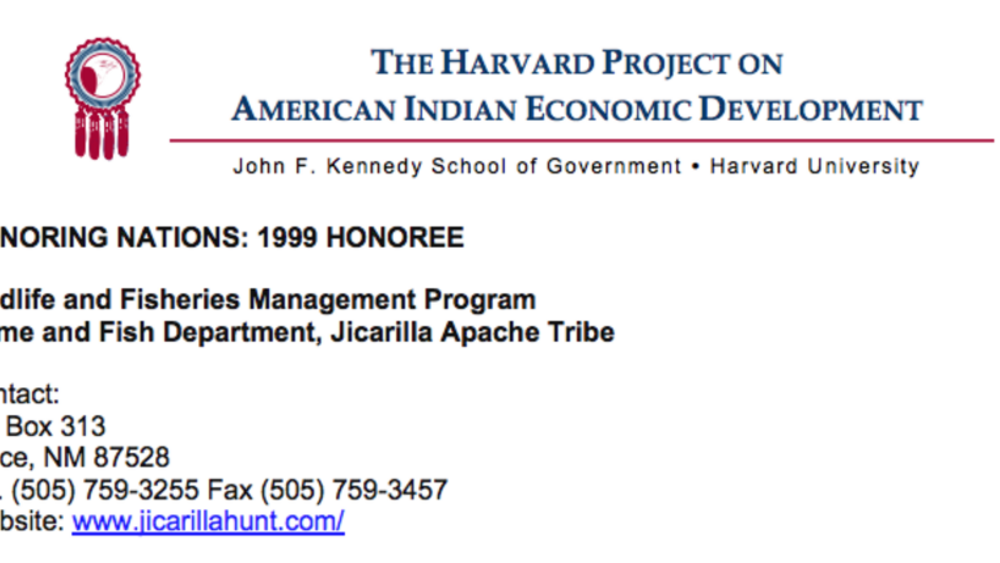
Jicarilla Apache's Wildlife and Fisheries Management Program
Recognized by state game and fish agencies as being one of the best of its kind, JGFD’s program includes a game and fish code and a wildlife management fund for habitat enhancement projects. The program restored the reservation’s mule deer population and trophy trout, and established a commercial…
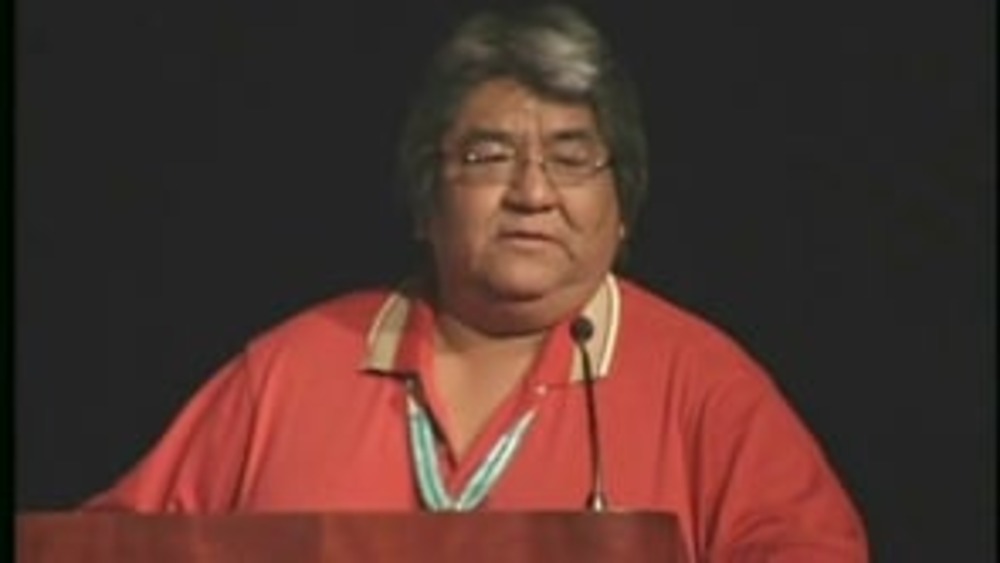
Honoring Nations: Cedric Kuwaninvaya: The Hopi Land Team
Former Chairman of the Hopi Land Team Cedric Kuwaninvaya presents an overview of the tribal subcommittee's work to the Honoring Nations Board of Governors in conjunction with the 2005 Honoring Nations Awards.

Honoring Nations: Jon Cooley: Building Capable Institutions of Self-Governance: White Mountain Apache Wildlife and Recreation Program
Jon Cooley, former director of the White Mountain Apache Tribe's Wildlife and Outdoor Recreation division, discusses how their program went about building capable institutions of self-governance in order to manage the Tribe's natural resources -- specifically wildlife -- in a sustainable manner.
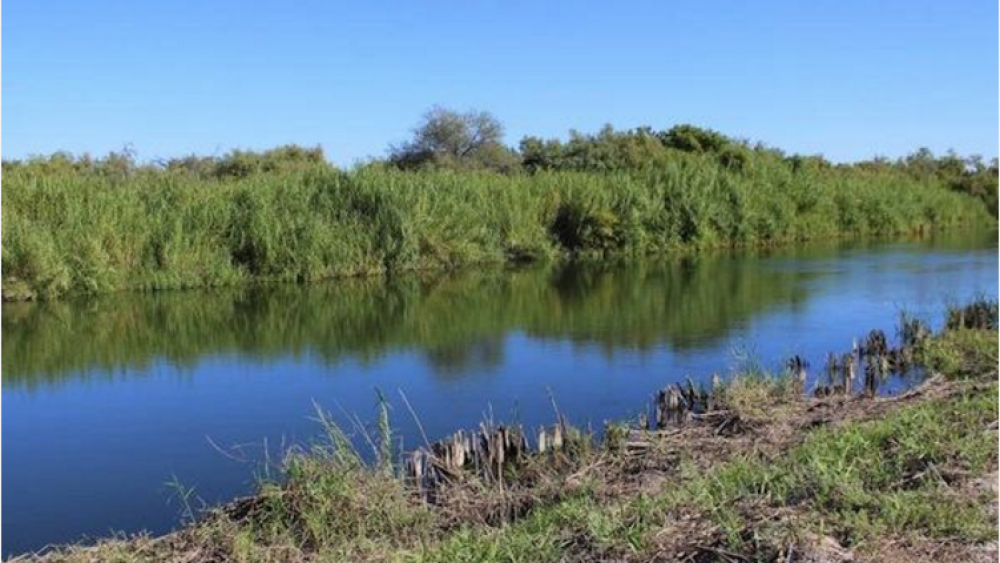
7 Tribal Programs That Protect Our Winged and Four-Legged Brothers
The news is full of sad stories about dying animals, species of all kinds being wiped out, and the random shooting of animals, among other depressing events. Amid all that it’s easy to forget that efforts aplenty are afoot to reverse the declines, save species, restore habitat and pull endangered…
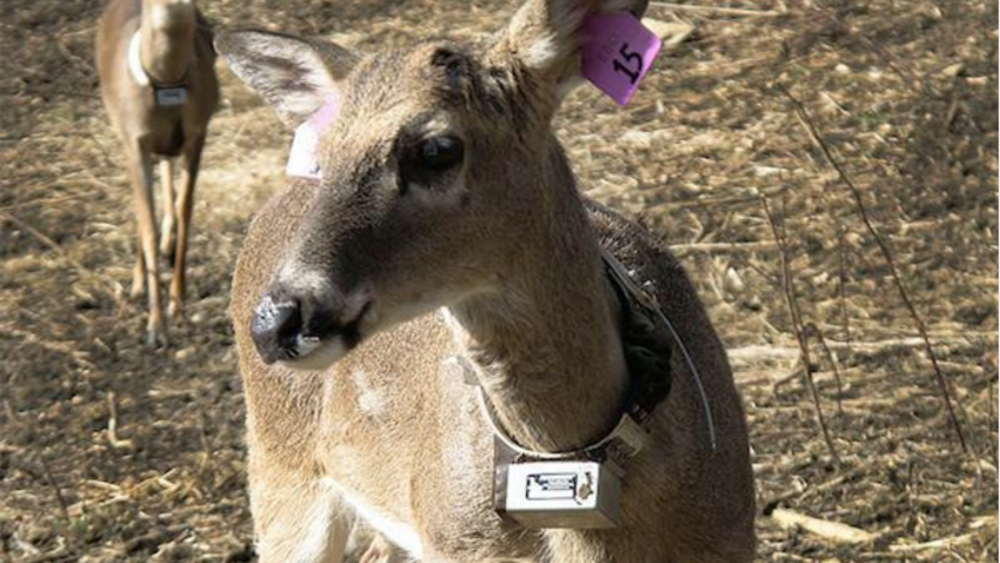
Eastern Band of Cherokee Replenishes Iconic White-Tailed Deer on Its Lands
The Eastern Band of Cherokee, deprived for centuries of the white-tailed deer that symbolizes their culture, are in the process of getting their icon back. Though deer are considered almost a pest in many parts, devouring gardens and proliferating, the Cherokee themselves, who have cherished the…
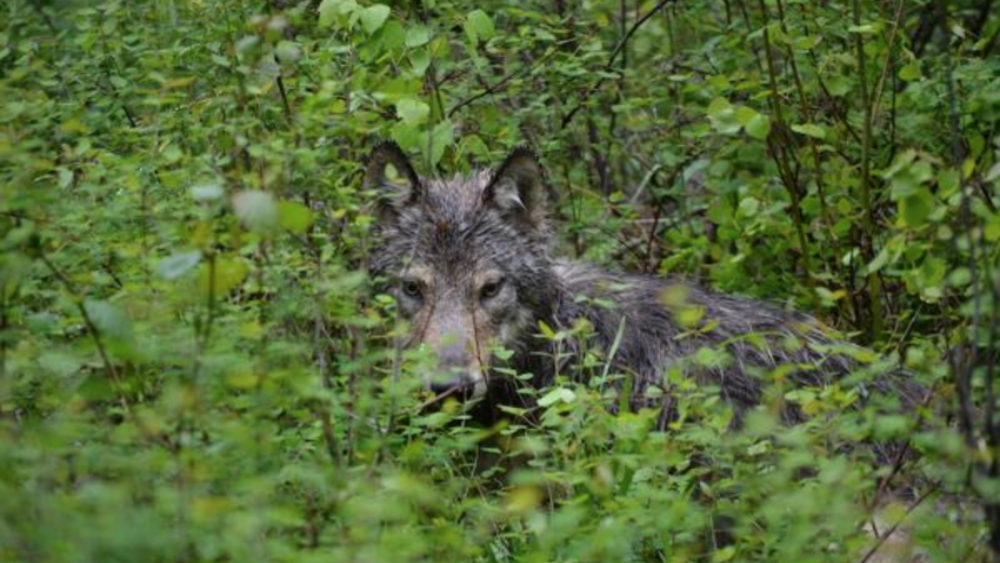
Colville Tribes Manage Wolves With Own Program
As controversy rages over the killing of the Wedge wolf pack in Washington State, the Confederated Tribes of the Colville Reservation are quietly managing one of the state’s eight remaining packs, with a second one possibly to be identified come spring, the pup-birthing season...
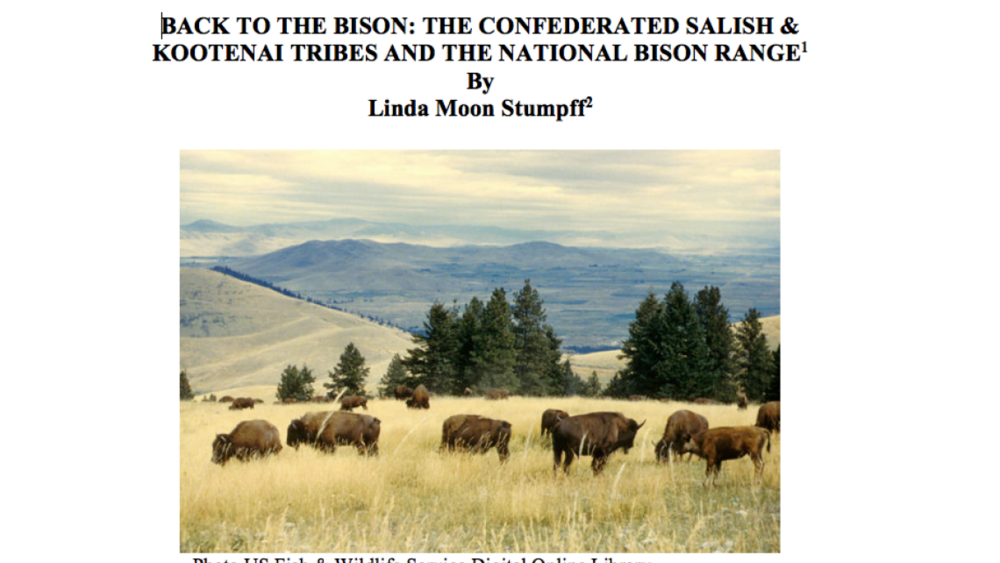
Back to the Bison Case Study Part I
Thirty years after taking over the reins of forestry, recreation, wildlife and other natural resource operations on their reservation lands, the Confederated Salish and Kootenai Tribes (CSKT) established a reputation for environmental leadership in wildlife, wilderness, recreation and co-management…
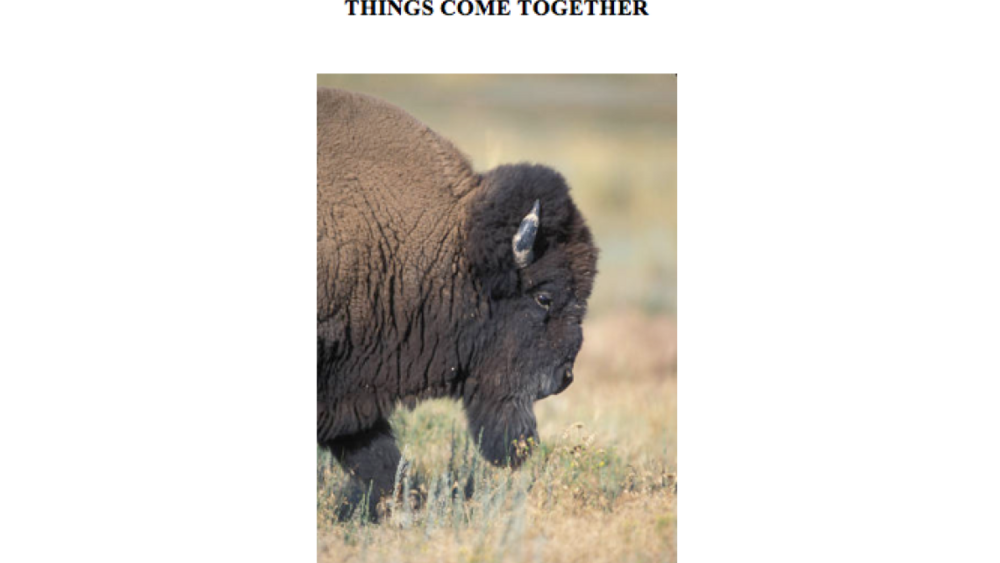
Back to the Bison Case Study Part II
After the Confederated Salish Kootenai Tribes (CSKT) made the decision to work towards signing a management agreement, they began discussions with United States Fish and Wildlife Service (USFWS) in 1994 to pursue the co-management and joint operation of the National Bison Range Complex (NBRC) which…
